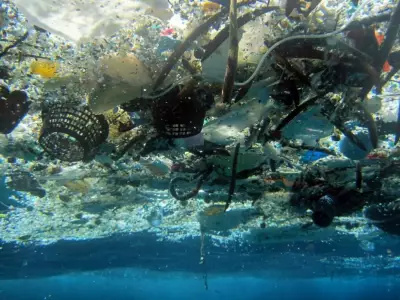
Disturbing new findings have emerged from the coastal waters of British Columbia, where scientific analysis of deceased sea otters has uncovered concerning levels of toxic "forever chemicals" accumulating in these beloved marine mammals.
Alarming Discovery in Coastal Waters
Researchers examining sea otters collected along Vancouver Island and the Central Coast have detected multiple types of per- and polyfluoroalkyl substances (PFAS) in their systems. These persistent industrial chemicals, notorious for their inability to break down naturally in the environment, are now making their way into marine food chains with potentially devastating consequences.
The Silent Threat to Marine Life
The study revealed that the otters contained various PFAS compounds, including PFOS and PFOA, which have been linked to numerous health problems in both animals and humans. What makes this discovery particularly troubling is that these chemicals can persist in the environment for decades, continuously accumulating in living organisms.
From Land to Sea: The Contamination Pathway
Scientists believe these forever chemicals are entering marine ecosystems through multiple pathways:
- Urban runoff from cities and industrial areas
- Wastewater treatment plant discharges
- Atmospheric deposition from industrial emissions
- Agricultural runoff containing contaminated materials
Broader Implications for Ecosystem Health
The presence of these chemicals in sea otters serves as a critical warning sign for the overall health of British Columbia's coastal environment. As apex predators in their nearshore habitats, sea otters act as important indicators of ecosystem contamination levels.
Urgent Call for Action and Awareness
This research highlights the pressing need for:
- Enhanced monitoring of chemical contaminants in marine environments
- Stricter regulations on PFAS use and disposal
- Increased public awareness about forever chemicals
- Further research into the long-term effects on marine wildlife
The discovery underscores how human activities on land are directly impacting even the most remote coastal ecosystems, reminding us that our chemical footprint extends far beyond our immediate surroundings.





